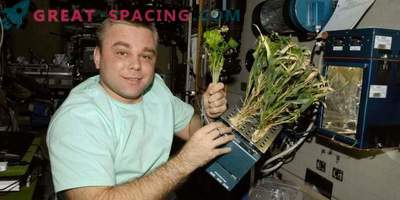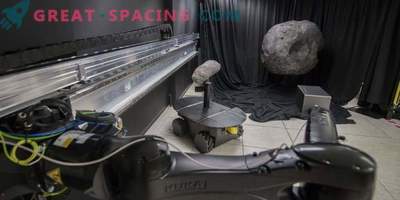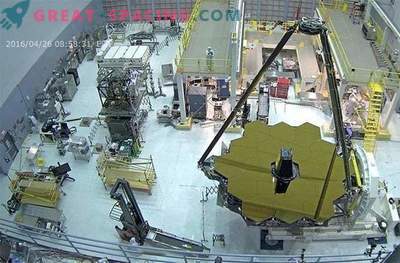
When people arrive on the Red Planet, their survival and successful work will require adaptation to local conditions and the use of resources in ways that were not planned.
Colonizing the planet will not be easy. It will take billions of dollars and years of specialized research, led by the world's smartest scientists and engineers. It will be necessary to apply advanced technologies that have not even invented yet - new types of spacecraft, advanced rocket engines, life support systems operating in deep space, and high-speed communications.
But, above all, the survival of humanity will depend on simple materials, low-tech solutions and a wide range of skills that will help to adapt.
“On Earth, when we went to a remote place to complete an engineering development project, it became clear that the use of high-tech equipment was not quite the right approach. What you need is the right technology, ”said planetary scientist Phil Metzger. - “It is necessary that the technology worked on local resources and labor.”
Metzger spoke at the New Space Era conference on Saturday (March 11th). He was a member of the Sustainable Expansion: Mars Achievement and Follow-Up group, which also included Jeffrey Hoffman (former NASA astronaut and director of the MIT Man Vehicle laboratory), Keegan Kirkpatrick (founder and leader of the RedWorks team) and Mark Jernigan (deputy director of the Directorate of Health and NASA performance).
The group agreed that the preservation of the structures and systems to be maintained by the colony cannot count on the support of the ships. “Mars should be independent of Earth,” said Kirkpatrick.
Imagine that after the British formed the Jamestown colony in Virginia, they built their homes in England and sent them across the Atlantic. And then they counted on additional supplies to make repairs.
On Mars, the colonists will have to rely on local conditions to search for building materials, water and oxygen. Kirkpatrick said that he and his RedWorks colleagues are inspired from the past. They invent a certain building material, popular during the time of the Roman Empire, - brewed tuff. In the manufacture of the modern version, a low-temperature system is used, capable of transforming small silicates and basalt compounds into simple stone compounds.
There is another method - the electrolysis of molten regolith, which uses electrical energy to destroy the soil in its basic minerals at one time. This process releases oxygen, which can be used to supply breathable air. In addition, it forms a kind of “mixed alloy”: iron, titanium, aluminum, silicon and other metals.
Although the fusion will not be too strong or of high quality, but under Martian conditions of low gravity it is not the main criterion. People can use it to create “denser” structures to support the survival of the first settlements.
“Such a simple system would be easier to maintain and supply with spare parts,” said Metzger.
Getting water and oxygen from the Martian atmosphere is much easier than trying to do the same with the soil. This is how Hoffman, deputy chief investigator for the MOXIE experiment (the use of oxygen resources on Mars.) Is reflecting. This is the first of its kind experiment to check whether life-supporting resources can be extracted from Mars. The tool is planned to be installed for the NASA Mars 2020 mission. He must separate the carbon dioxide molecules in the atmosphere of the Red Planet into carbon and oxygen. “In such a mechanism, it’s important that you don’t need a whole mining infrastructure,” Hoffman said.
“I mean, we are now struggling with the launch of MOXIE, consisting of a small number of moving parts, with the exception of the compressor,” he said. “To create a huge mechanism for extracting the necessary resources, and even working autonomously, is a difficult task.”
But people who go to Mars may surprise you.
“There should be a lot of people on Mars with a diverse, less specialized set of skills,” said Kirkpatrick. - “That is, ordinary people with the ability to maintain this huge diverse economy.”
We'll have to master the standard earthly affairs. For example, a colony of Mars is likely to have greenhouses. People will need to understand what farming is, as well as biology and pest control.
“If we are talking about trying to survive on the Martian surface, then the level of skills should be as diverse as possible,” said Jernigan.
People will need to adapt to local conditions and use resources in ways that were not planned.
“We’ll need a lot of Macgivers,” says Jernigan.











































